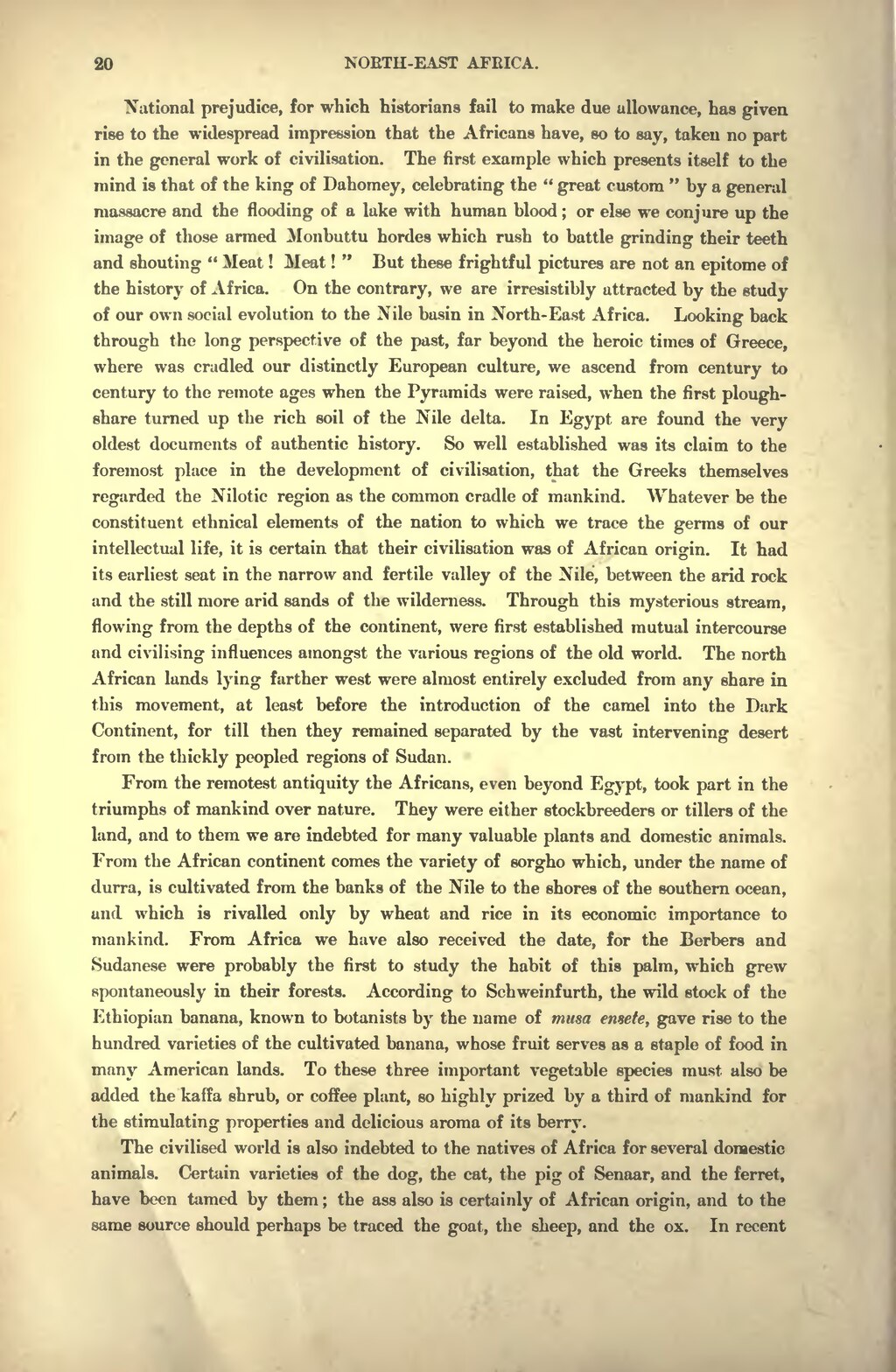National prejudice, for which historians fail to make due allowance, has given rise to the widespread impression that the Africans have, so to say, taken no part in the general work of civilisation. The first example which presents itself to the mind is that of the king of Dahomey, celebrating the "great custom" by a general massacre and the flooding of a lake with human blood; or else we conjure up the image of those armed Monbuttu hordes which rush to battle grinding their teeth and shouting "Meat! Meat!" But these frightful pictures are not an epitome of the history of Africa. On the contrary, we are irresistibly attracted by the study of our own social evolution to the Nile basin in North-East Africa. Looking back through the long perspective of the past, far beyond the heroic times of Greece, where was cradled our distinctly European culture, we ascend from century to century to the remote ages when the Pyramids were raised, when the first ploughshare turned up the rich soil of the Nile delta. In Egypt are found the very oldest documents of authentic history. So well established was its claim to the foremost place in the development of civilisation, that the Greeks themselves regarded the Nilotic region as the common cradle of mankind. Whatever be the constituent ethnical elements of the nation to which we trace the germs of our intellectual life, it is certain that their civilisation was of African origin. It had its earliest seat in the narrow and fertile valley of the Nile, between the arid rock and the still more arid sands of the wilderness. Through this mysterious stream, flowing from the depths of the continent, were first established mutual intercourse and civilising influences amongst the various regions of the old world. The north African lands lying farther west were almost entirely excluded from any share in this movement, at least before the introduction of the camel into the Dark Continent, for till then they remained separated by the vast intervening desert from the thickly peopled regions of Sudan.
From the remotest antiquity the Africans, even beyond Egypt, took part in the triumphs of mankind over nature. They were either stockbreeders or tillers of the land, and to them we are indebted for many valuable plants and domestic animals. From the African continent comes the variety of sorgho which, under the name of durra, is cultivated from the banks of the Nile to the shores of the southern ocean, and which is rivalled only by wheat and rice in its economic importance to mankind. From Africa we have also received the date, for the Berbers and Sudanese were probably the first to study the habit of this palm, which grew spontaneously in their forests. According to Schweinfurth, the wild stock of the Ethiopian banana, known to botanists by the name of musa ensete, gave rise to the hundred varieties of the cultivated banana, whose fruit serves as a staple of food in many American lands. To these three important vegetable species must also be added the kaffa shrub, or coffee plant, so highly prized by a third of mankind for the stimulating properties and delicious aroma of its berry.
The civilised world is also indebted to the natives of Africa for several domestic animals. Certain varieties of the dog, the cat, the pig of Senaar, and the ferret, have been tamed by them; the ass also is certainly of African origin, and to the same source should perhaps be traced the goat, the sheep, and the ox. In recent
